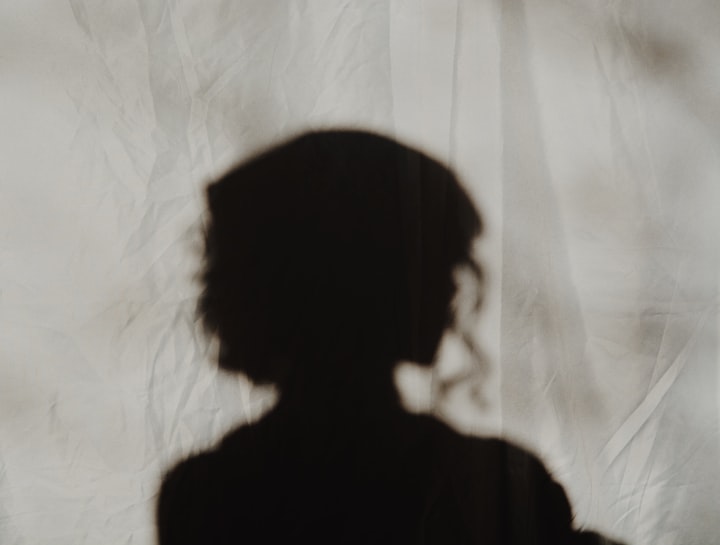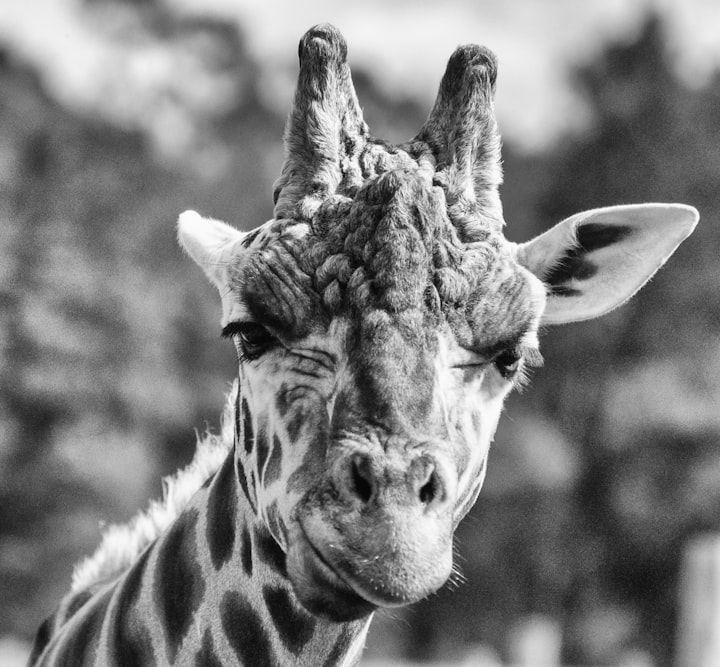Cinderella: Done Dirty
An exploration of society's slanderous misreading of one of Disney's most iconic princesses of all time, and how this indicates a dangerous shift in our values as a culture.

It's 1950. You're Walt Disney.
It's been two years since production was fast-tracked on one of your studio's most risky ventures. Your last three animated films, made with love and care, flopped in the midst of the Second World War. You're millions in debt, and you've just finished plunging yourself farther into the hole -- all for another feature-length animated project, to be given the same love and care as your previous works.
Unbeknownst to you, this film will not only catapult your studio out of debt, but also become an enduring classic in American cinema.
The film, given the title of its main character 'Cinderella,' is released. It receives rave reviews from critics. You've done it. You've dazzled audiences and investors all in one fell swoop. You are able to continue pursuing your lifelong passion for animation, as well as share it with the world.
Life is good.
If the story ended here, we could easily call it a happy ending.
But this world isn't often so kind.
As Cinderella solidified into one of the many crown jewels in the studio's legacy, society's standards shifted and shifted again. As they always do. Fads, ideologies, and philosophies seethed and squirmed across the decades. And suddenly, against the backdrop of second-wave and third-wave feminism, something came to society's attention:
Disney's Cinderella is not a strong and independent woman.
She's weak. She's oppressed. She's a servant in her own home. She doesn't fight back. She waits around for a man to save her.
The shock and horror was palpable. Think of the children! The young girls being spoon-fed these ridiculous, outdated, misogynistic ideas about what a woman should be. They're being brainwashed! They're going to end up just like Cinderella unless we do something!
Boycott her! Boycott the evil Cinderella!

This is an attitude that can be traced back to the likes of 1977, with Jane Yolen writing the following scathing review of what she dubbed the 'American Cinderella' propogated by the Disney film:
"She cowers as her sisters rip her homemade ball gown to shreds. (Not even homemade by Cinderella, but by the mice and birds.) She answers her stepmother with whines and pleadings. She is a sorry excuse for a heroine, pitiable and useless. She cannot perform even a simple action to save herself, though she is warned by her friends, the mice. She does not hear them because she is 'off in a world of dreams.' Cinderella begs, she whimpers, and at last has to be rescued by--guess who-- the mice!"
This attitude didn't disappear into the annals of feminism. Keira Knightley famously declared on an intervew with Ellen in 2018 that she refused to allow her daughter to watch Cinderella, stating: "[Cinderella] waits around for a rich guy to rescue her. Don’t. Rescue yourself! Obviously."
Essentially, what we're being presented with is this: Cinderella is a passive character who does nothing to help herself. She is not 'kind' -- she is weak. She is too submissive to put up any sort of fight. She is a sexist, misogynistic Mary-Sue who fosters the idea of a pretty, if not empty-headed, homemaker being the ideal woman. Her story teaches young girls that a woman needs a man to save her.
Clearly, there are many strong feelings to go around. And rightly so, if the above analyses are to be trusted.
However, I would like to posit that they are mistaken. In doing so, my rebuttal usually takes the form of:
Did you guys even watch the movie?

It still boggles my mind to this day. Disney's Cinderella was one of my favourite movies growing up. I found the whole of the story, the setting, the characters, the music, and the mood to be warm, gentle, and soothing. To this day, it is one of my comfort movies.
But as I grew older, word of the title character's inherent toxicity began to trickle into my ears.
She was sexist? She was a bad role model?
My memory must have been playing tricks on me. Otherwise, I had simply been too young to appreciate the nuances and context of her story.
"I should watch it again," I thought to myself. "I don't want any harmful ideas that may have been planted in my brain to perpetuate, after all."
So I rewatched Cinderella after what had amounted to years. And by the end, I was even more perplexed.
The Cinderella I saw was not the damsel in distress everyone was making her out to be. With all of my conviction -- my entire world view -- I was sure of it.
And so, I began to dig. I reviewed critics' pieces on her as well as apologists' and outright defenders' counter-arguments. I even took some pages from my casual interest in psychology and applied them to Cinderella's story.
Here is my defence of Cinderella. Or my interpretation of what we all saw, if you prefer.

Cinderella is the story of an altruistic, dauntless, persevering young woman who overcomes and breaks free from her emotionally- and psychologically-abusive family, moving on to a fulfilling life that includes a safe and stable relationship -- a life with someone who actually cares about her. She is also a compelling example for victims of abuse to look to for reassurance, as she remains as happy as she can be in whatever circumstances she faces.
Let's pick that all apart.
Altruistic? Sure, that adds up. She's the 'kind' Disney Princess™️. But dauntless? Persevering? How so?
These adjectives apply most accurately to her inner self. Throughout her time in an abusive environment, she does not resort to cruelty, cynicism, bitterness, indifference, or despair to cope, boost her self-worth, or blow off steam. Rather, she dauntlessly remains kind, dignified in the face of her derisive step-family, and looks to the future with hope and confidence that one day her dreams of freedom will come true (though she currently sees no way out).
In the meantime, while she obviously does not enjoy her forced servitude, Cinderella finds joy in her blessings, choosing not to dwell on her causes for grief. She remains appreciative and as contented as she can be, daydreaming of better days that she is confident will come. She is unable to take control of the people around her or her circumstances, but she retains control of her perspective and her inner self. She perseveres and waits patiently for the right opportunity to escape and, when it comes, she courageously grabs onto it with the help of the friends she's made over the years.
Yes, it's true that her animal friends come to her rescue, in the end. But I would argue that, in a sense, Cinderella saved herself. Because if Cinderella had never befriended the mice and all of the other animals on her late father's estate, would they have intervened -- risking their very lives -- to get her out of the attic? Why would they, if she had been unkind or indifferent towards them?
This, again, speaks greatly to Cinderella's inner strength of character. Though she was constantly being rejected and pushed around by her step-family, she chose to nurture healthy friendships with likewise kind-hearted individuals -- showing her inner sense of self-worth was unaffected by the cruelty she was subjected to, and showing her capable of thriving in a functioning relationship. No, these friendships were not born of pity or convenience. Cinderella actively developed them from a young age. She took care of all the animals around her; feeding them, rescuing the mice from traps and from Lucifer, making them clothes, and even sharing her songs with them. She showed great care and compassion to those that fell under her responsibility, even extending herself outwards to those whose lives she could simply make a difference in. All while being a so-called 'weak' victim.
Let's touch on that, as well: Cinderella's victimhood. Many are of the opinion that, because Cinderella is a victim of abuse and does not fight back against her abusers, she is weak. Therefore, she didn't do anything to deserve her happy ending.
If that is the conclusion that you have come to, then you are condemning almost every real-life victim of abuse as 'weak' and not worth helping. Not even worthy of the freedom one would expect to be a basic human right.

Abuse is an extremely complex and delicate matter. Things are rarely as black-and-white as they may appear from the outside. Anything to do with relationships -- especially a deep-seated, intimate relationship -- is complicated. And in the case of abuse, it's a relationship that's been deftly twisted to favour one individual at the expense of the other.
How so? Victims often feel dependent on their abuser. And this is not usually an accident; many abusers will intentionally and willfully gaslight and manipulate their victims to keep them in a weak psychological, emotional, or financial state. Abusers may keep their victim from earning their own income, isolate them from friends and family so that the only source of companionship and 'love' in their life comes from the abuser, and subtly or not-so-subtly instill the idea that they are worthless without the abuser -- not even capable of taking care of themselves.
But here's the interesting part:
A person is not weak or pathetic for being a victim.

No person is infallible. We all make mistakes. We all end up in circumstances beyond our control. We all need help sometimes. And there's nothing wrong with that.
So: what does it say about our society if we take one look at a fictional victim like Cinderella and scold her, rather than feel compassion for her? Because Cinderella's case is no exception: she is a textbook victim of abuse.
After her father's passing, she is humiliated, rejected, and verbally mistreated by the only family she has left, the abuse culminating in her being forced to become a servant in her own home. Her step-mother is cruel, jealous, and manipulative, and she is aided and abbetted by her spoiled, insipid daughters. Cinderella is a grief-stricken child when this begins: she is not able to fend for herself. And by the time she reaches adulthood, she has been isolated from society for so long that her only friends are the animals on the property.
As an aside, unlike many victims of abuse, Cinderella does not show much of an emotional attachment to her step-family. This is an extremely positive influence for victims of abuse, as it is indicative of how she views herself in comparison to how she's treated. She does not seek the praise of her abusers, nor view them as a valid source of love and affection. Instead, she simply tries to avoid confrontation to keep her life as easy as possible.
The main issue, though, is this: she is financially dependent on her step-mother. She is thus unable to strike out on her own or even run away. The film itself addresses this very neatly, early on in the runtime:
Cinderella is downstairs in the kitchen, preparing breakfast for her step-family. The household dog, Bruno, is asleep on the rug by the hearth, dreaming of chasing and killing the family cat, Lucifer. When Bruno awakes, Cinderella scolds him for dreaming such a dream. She explains to Bruno that if he were to carry out his wishes, he'd be turned out onto the street -- losing food and shelter -- because Lucifer is Lady Tremaine's cat.
Bruno and Lucifer's relationship, needless to say, is a metaphor for Cinderella and Lady Tremaine's. Cinderella is, in effect, saying that she can't retaliate against her step-mother because the moment she loses her 'usefulness,' she would be kicked out of the house and left to starve on the streets. As we noted before, Cinderella has no friends or connections to the outside world. Who knows what would become of her? At least in her late father's house, as horrible as her step-family is, she has all of her practical needs met.
(To note: the only time Bruno is allowed to attack Lucifer is at the end of the film when Cinderella's chance of freedom is at stake. This serves as a metaphor for Cinderella finally being able to risk a fight in order to escape her captivity. And she does not hesitate. The film even goes as far as killing off Lucifer, symbolically killing off Lady Tremaine's hold over Cinderella.)
Okay, fine. Cinderella is a victim, she can't change her circumstances, and she needs help. But what about the Prince? She doesn't 'break free' by herself -- she runs off and marries him. Isn't this film basically saying that women need big, strong men to come rescue them whenever the need arises? What kind of message is that?
A nice one.

Whoever said that finding a good life partner was wrong?
With that in mind, let's consider the context of the ball and our young couple's ensuing romance.
Think back to when Cinderella delivers the royal invitation to her step-mother. After her step-mother reads it aloud, who gets excited about dancing with and marrying the Prince? Cinderella's step-family. Think of the power and the money a connection like that would afford! Cinderella, on the other hand, only expresses interest in going to the ball, as the King decreed that every eligible maiden is to attend. As far as Cinderella is concerned, even her step-mother can't deny her this -- it's the King's order. She says as much when her step-sisters taunt her for wanting to go.
So: Cinderella isn't looking at the Prince as some kind of sugar daddy who will get her out of her situation. Even when Cinderella is first giving up hope of going to the ball, as she didn't have time to work on her dress after being inundated with extra chores, she makes no mention of him.
But when she finally goes to the ball, she does dance with him and they fall in love overnight. Come on! That's not how love works!

My rebuttal: this movie isn't truly about their love story. Cinderella is the main character. It's her story. The Prince is more of a side quest.
That being said, there may be more to their 'fling' than meets the eye.
Firstly, Cinderella had no idea she was dancing with the Prince. As far as she was concerned, he was just a chill dude who was also at the ball.
Secondly, he's protrayed as a decent and courteous individual, treating Cinderella with dignity and respect -- something she hasn't felt from another human in years. So of course she would be drawn to him!
I would also contend that the Prince being drawn to her also makes sense. The Prince is a romantic, not wanting to marry out of duty, but for love. Cinderella, being her amazing self, is very capable of building and maintaining a loving relationship, as established by all of the friendships she's grown over the years. On top of that, she was the only girl at the ball who wasn't lined up to greet him -- who wasn't looking at him for his power or his money. As noted before, she didn't even realize the man she was spending her evening with was the Prince! She liked him for who he was, not for what he had.
I mean, if I were the Prince, I would be pretty smitten.

Can you fall in love overnight, though?
Of course not. That's not what I'm contending. My point is that there is more to their relationship than what most people would give them credit for. But I also hold that the message of this film is not 'you can totally fall in love overnight!' Ultimately, as I mentioned before, this movie is not about their love story -- it's about Cinderella.
On top of that, we're almost at the end of our runtime. We don't have time to properly explore their relationship or the Prince's character (though that was something that was included in early storyboards of the film).
So: they sing a song. They fall in love. She gets a stable relationship in her life.
Moving on.
But wait! Princes rescuing damsels in distress is too toxic of a trope to pass over! We can't let the movie off the hook that easily!
Actually, we can.
Because the Prince doesn't really save Cinderella. Once she bolts, he's unable to track her down. Even when the Duke makes it to her house, Lady Tremaine has her trapped in the attic. So, really then, it's her animal friends that free her -- all because of her active choices over the years to treat them kindly and with compassion.
And so, if I may be so bold:
Check. Mate.

Overall, Cinderella is a stunning example of courage in the face of a seemingly unchangeable situation. She makes the best of her circumstances and remains true to herself in spite of how she is treated. And she never gives up hope.
But still, the fact remains: not everyone sees Cinderella in this light. Many have and will continue to have an extremely negative view of her character, her character's struggles, and her character's reward. Now, why does this matter? What does this mean for us as a society?
Simply put: we've gotten nasty.
If someone mistreats you, fight them. If someone is mean to you, insult them. If someone gets in your way, push them down and don't look back. That will fix your situation. That will make you happy. Only if you win can you be happy. Life is a competition, people are your competitors, and there's only one winner, apparently.
Kindness in the face of cruelty? That's not strength -- that's weakness. Humility in the face of arrogance? That's not strength -- that's weakness. Patience in the face of unrelenting selfishness? That's not strength.
That's weakness.
Not only is it weakness, but it's...
Feminine.

As a society, we've historically taken qualities that help make up the foundations of cohesive and up-building interpersonal relationships and we've said: only women are allowed to be this way. And with the ever-present fight for equality, even women cannot be this way anymore -- not unless they want to get trampled on. Because 'femininity' is inferior to 'masculinity.' So women need to be more like men if they want a fighting chance.
What change in behaviour does that entail?
What patriarchal values have instilled in men -- the need to be aggressive, antagonistic, relentless, self-absorbed, and 'strong' -- always 'strong!' And that's what we as a society are now instilling in women, under the guise of 'feminism' in many cases.
This begs the question: why?
Why are qualities like kindness, patience, and humility feminine? Why have men been told for so long that qualities like these are not for them?
Why has half the population -- nowadays, the entire population -- been actively discouraged from contributing to the peace and tranquility of society?
Why is our happiness dependent on our circumstances -- on 'winning' -- and not on how we choose to live?
Walt Disney famously mentioned to Cinderella's beloved voice actress, Ilene Woods, that Cinderella was his favourite heroine. When asked why, he simply stated: "There's something about that story I associate with."
We can't be sure what Walt truly meant, of course. But knowing the difficult upbringing he had endured, as well as the uphill battles he was constantly meeting and overcoming to keep the studio and his dream alive... how his patience and perseverance was eventually met with fate smiling upon him...
I think we can take a pretty good guess.
About the Creator
Melissa
Staring up at the stars that aren't there anymore.







Comments
There are no comments for this story
Be the first to respond and start the conversation.